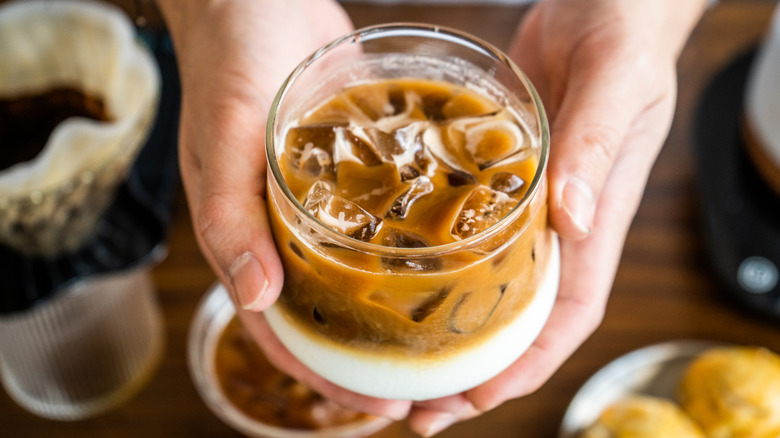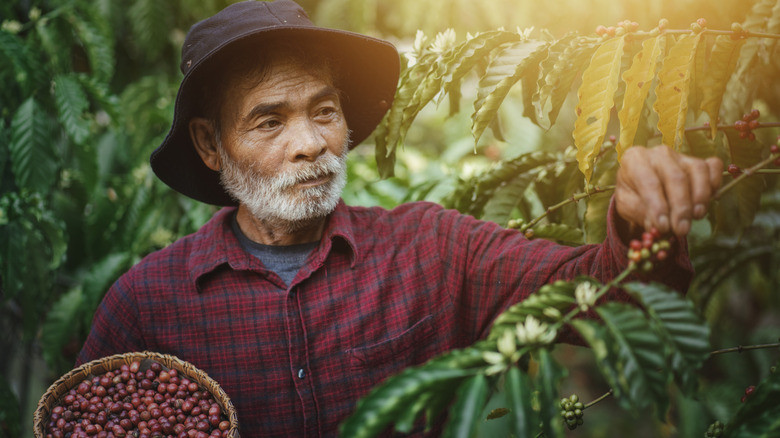What Makes Thai Coffee So Special?
Thai coffee isn't just a drink, it's an immersive journey through Thailand's history, geography, and cultural traditions. Known for its rich, smooth flavor, Thai coffee owes much of its distinctiveness to the unique conditions of the country's northern highlands, particularly Chiang Mai and Chiang Rai. These regions provide high altitudes, cool temperatures, and nutrient-rich soil, ensuring that some of the finest arabica beans in the world can be cultivated here. The combination of these elements allows the beans to develop a flavor profile that's delightfully complex.
What sets Thai coffee apart, however, isn't just its origins or flavor. Thai farmers rely on traditional cultivation methods that have been passed down through generations. Small-scale farming, hand-picking, and innovative processing methods all contribute to the coffee's artisanal quality and sustainable nature. This attention to detail results in a product that embodies the soul of Thailand, full of flavor, culture, and care. Whether you're sipping a robust hot coffee or enjoying a creamy iced gafae yen on a bustling Bangkok street, Thai coffee offers an experience unlike any other.
Growing and processing Thai coffee
Thai coffee's story really began in the 20th century when King Bhumibol Adulyadej championed the cultivation of coffee in Thailand's highlands. Originally part of a larger effort to replace opium farming, the initiative led to the thriving coffee culture we see today.
As the country's coffee industry has grown, it has increasingly utilized sustainable growing practices. For example, it is common for Thai coffee growers to use organic compost to reduce soil breakdown and to grow coffee in areas of natural shade, minimizing the crop's water consumption. Shade-grown coffee plants also provide an excellent habitat for wildlife, especially birds.
As Thailand has increasingly focused on specialty coffee, companies have started using innovative processing methods to help their products stand out. For example, some producers have experimented with various types of honey processing. This is when some of the coffee cherry is left attached to the bean during the drying process, ultimately giving the coffee a sweet, fruity taste. Products such as these have made Thailand a serious player on the specialty coffee scene.
How to enjoy Thai coffee
Just as Thai food that's served in Thailand differs from Thai food that's served in America, Thai coffee is different depending on where you drink it. While Americans might use Thai coffee beans to brew a cappuccino or latte, there are two ways most Thai people enjoy Thai coffee. Gafae yen, Thailand's signature iced coffee, is perhaps the most well known. This sweet and creamy concoction is made with strong coffee and condensed milk. Sometimes, the likes of cardamom or sesame seeds are added for extra flavor. Compared to American iced coffee, which is often just black coffee poured over ice, gafae yen offers a rich and indulgent drinking experience. This is vital knowledge to have if you're one of the many people who drink iced coffee during all 12 months of the year.
Another popular Thai coffee is kafae boran. This drink involves ground coffee, sugar, and ground grains like rice or soybeans being placed inside a cotton filter. Boiling water is then poured into the filter, and the brewed coffee seeps through the fabric and into the mug below. The end result is an incredibly flavorful cup of coffee. (If you want to brew a similarly flavorful cup but don't have access to Thai coffee, try following these coffee brewing tips.) Of course, Thailand's ability to merge tradition with innovation means Thai coffee beans can be used to make coffee via any production method. However, if you want to enjoy Thai coffee at its most special, we suggest sipping on either a kafae boran or a gafae yen.


